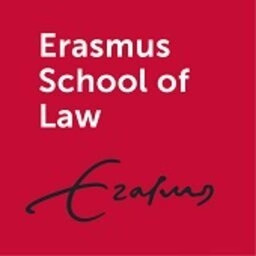Erasmus School of Law is characterised by research on the function of law in its economic and social context, more specifically on the overarching question of the role of law in safeguarding public and private interests in national and international trade and commerce.
Our researchers advance science and the scientific education of our students by having an intrinsically driven mindset across roles and disciplines, and by making effective connections and building national and international strategic networks with stakeholders.
Methodically our research groups work across the boundaries of legal disciplines by utilising scientific insights from other academic disciplines, such as economics and political sciences, and by applying methodological tools of social science research, such as empirical and experimental methods, in addition to doctrinal legal methods.
Impact Case Studies
Completed projects
 Network of Excellence for Training on Hate (NETHATE)
Network of Excellence for Training on Hate (NETHATE)This Marie Skłodowska-Curie Innovative Training Networks grant, brought together an interdisciplinary team of leading scholars of hatred to examine the dynamics of the spread of hate in both offline and online fora, mitigation and reconciliation strategies, and impact on victims and bystanders. The network fostered the participation of 10 universities and 1 NGO as the network Beneficiaries and 14 Partner organizations (two Ministries, two companies, and ten NGOs) all deeply involved in this area provided the early-stage researchers (ESRs) a broad and deep multi-disciplinary and inter-sectoral training. EUR’s PhD, Tegan Snyman, produced the doctoral thesis entitled, Religiously motivated hate speech targeting queer people: An International Human Rights Law Analysis.
Project leader for Erasmus School of Law: prof. mr. dr.drs. (Jeroen) JD Temperman.
 Cross-border Corporate Mobility in the EU (CbCM)
Cross-border Corporate Mobility in the EU (CbCM)The CbCM project, founded in 2017, collected empirical data on cross-border mergers, divisions, conversions and the setting up of SEs to enable fact-based legislation making in European corporate law. It further focussed on data science in relation to data-scraping, database engineering and data analytics and visualization, with the objective to contribute to the furtherance of data science applications in economic and social law.
Project leader: dr. T (Thomas) Biermeyer.
 Digital Governance (DIGOV)
Digital Governance (DIGOV)Digital Governance (DIGOV) analyzed which rules and norms are needed to enable Big Data and Artificial Intelligence to fully support our individual and societal interests. To that aim DIGOV organized international conferences, a visiting scholar program, policy consultations, and built an open teaching platform. The Jean Monnet Centre of Excellence on Digital Governance became a powerhouse for expertise in digital governance and a sustainable platform for related activities. The Massive Open Online Course (MOOC) on Legal disruption and European policy discusses the basic challenges of digital governance and the disruptive effect of digital technologies within the context of EU law and politics.
Project leaders: prof.dr. (Klaus) K Heine and prof.dr. (Evert) EF Stamhuis, LLM
 EU Trade and Investment Policy (EUTIP)
EU Trade and Investment Policy (EUTIP)The objective of EUTIP was to foster interdisciplinary research into the evolving international trade policy of the European Union (EU) with a view to create a significantly increased European knowledge base and research capacity on EU law and policy of the regulation of international trade through free trade agreements.
Project leader for Erasmus School of Law: prof.dr. F (Fabian) Amtenbrink.
 Informed Choices in Cross-Border Enforcement (IC2BE)
Informed Choices in Cross-Border Enforcement (IC2BE)IC2BE was an international research project on Cross-Border Litigation in the European Union. It was a follow-up of the successful EUPILLAR project (2014-2016). IC2BE examined the functioning of the rules and practices governing the cross-border enforcement of civil judgments in Europe. We created a database of relevant case-law of national courts and the Court of Justice of the European Union (CJEU) to facilitate informed instrument choices by practitioners. The project published J. von Hein & T. Kruger (eds.), Informed Choices in Cross-Border Enforcement, Intersentia 2020.
Project leader for Erasmus School of Law: prof.mr.dr. XE (Xandra) Kramer.
 Integrating Normative and Functional Approaches to Rule of Law and Human Rights (INFAR)
Integrating Normative and Functional Approaches to Rule of Law and Human Rights (INFAR)INFAR was a collaborative, multidisciplinary research project investigating: Whose responsibility is it to protect basic values such as the rule of law and human rights? And how can this protection be combined with the economic and political goals of the actors that are involved? We organized expert meetings and workshops with a broad group of stakeholders. An important part of our conclusions is that attempts to integrate different approaches of RoL and HR are not generally successful. The core idea of the rule of law as we define it in this project easily gets lost when it is merged functionally with other concerns.
Project leaders for Erasmus School of Law: prof.mr.dr. HS (Sanne) Taekema and prof.mr.dr. (Karin) CJM Arts (ISS)
 Shifting from welfare to social investment in controlling work-related risks (SIS)
Shifting from welfare to social investment in controlling work-related risks (SIS)The overall goal of the project was to analyse the shift in allocating responsibilities from public to private actors insofar as the control of work-related risks is concerned, and to derive policy implications from these insights. The programme produced studies showing that collaborative initiatives between public and private actors do not always succeed in alleviating suffering from work-related risks and explaining why this is the case. The SIS programme improved insights into the implementation of social investment policies and the emergence of collaborative governance initiatives between public and private actors in controlling work-related risks, as well as its consequences for stakeholders.
Project leaders for Erasmus School of Law: prof.dr. (Peter) P Mascini and prof.dr. (Michael) MG Faure, LL.M
 Doctors and Criminal Lawyers, Dealing with Death and Dying
Doctors and Criminal Lawyers, Dealing with Death and DyingThis project was a collaborative research project between the Erasmus School of Law and the Public Health department of the Erasmus MC in Rotterdam. The aim was to combine empirical research with the expertise of criminal law to better understand, regulate, and control end-of-life decision-making in health care and (criminal) law. The project focused on the societal, ethical, and legal issues in end-of-life decision-making at the perimeters of the euthanasia law.
Project leaders for Erasmus School of Law: prof.mr. PAM (Paul) Mevis, and prof. Agnes van der Heide M.D., Ph.D. (Erasmus MC)
 EU-China Legal and Judicial Cooperation (EUPLANT)
EU-China Legal and Judicial Cooperation (EUPLANT)EUPLANT assessed the interactions between the Chinese and the European Union (EU) legal and judicial systems and promoted excellence in teaching and research on EU-China legal and judicial cooperation. Through a set of research, policy, and outreach activities, EUPLANT created new avenues for enhanced academic and policy cooperation between the EU and China and improved understanding of each other’s legal systems. We developed a set of policy recommendations targeting policy makers and other stakeholders that have an interest in the deepening of EU-China legal and judicial cooperation.
Project leader for Erasmus School of Law: prof.dr. (Yuwen) Y Li
 Transfer of Criminal Proceedings (TROP)
Transfer of Criminal Proceedings (TROP)This research project provided an in-depth analysis of the current practice of the transfer of criminal proceedings in the EU, it identifies the main challenges experienced by practitioners and describes possible solutions to those problems. The report is delivered to the European Commission with building blocks for the new legal instrument on the transfer of criminal proceedings in the EU. These solutions and building blocks were tested in multiple discussions between practitioners, academics and policymakers from both EU Member States and EU institutions (EC, EJN, Eurojust).
Project leader for Erasmus School of Law: prof.mr. (Pieter) PAM Verrest
 Drug Trafficking Through the Port of Rotterdam
Drug Trafficking Through the Port of RotterdamThis project helped improve academic and practical knowledge among professionals and policymakers on the logistics of drug trafficking through one of the global main ports. The results and recommendations were translated by the Rotterdam authorities into a confidential implementation agenda (Offensive against Drugs crime. Heading on a safe and resilient Port of Rotterdam, 2021) translating all six major recommendations from the report into 22 action points which are currently being implemented. Both public and private stakeholders indicated that the research had stimulated awareness, urgency even, of the requirement for cooperation. Overall, the project not only fuelled improved collective law enforcement practices, but also initiated broader awareness—in society, with national and international authorities, in the academic field of criminology—of the problems with drugs criminality in this port and similar ports.
Project leaders for Erasmus School of Law: prof.dr. (Richard) RHJM Staring, dr. (Robby) RA Roks, prof.dr. (Lieselot) LCJ Bisschop, (Elisabeth) E. Brein MA and Prof. (Henk) H. van de Bunt
 Building EU Civil Justice (EU Justice)
Building EU Civil Justice (EU Justice)The project ‘Building EU civil justice’ studied four key trends in contemporary European civil procedures, including digitalisation of procedures, further privatisation of civil justice, increased self-representation, and specialisation of courts and procedures. By combining legal-normative analysis with empirical analysis of how policies work out in practice, conclusions could be drawn on their influence on access to justice and policy recommendations were made. To further the integration between academia, practice, and policy, conferences and workshops were organized, where renowned international researchers and stakeholders from legal practice and policy makers shared knowledge and views. Learning from practical experience has supported academic findings, and the research conducted in this research has contributed to new EU legislative proposals.
Project leader for Erasmus School of Law: prof.mr.dr. XE (Xandra) Kramer
 Working, Yet Poor (Work YP)
Working, Yet Poor (Work YP)WorkYP focused on the increasing social trend of working people at risk or below the poverty line. Together, the partners elaborated the necessary theoretical frameworks, initiated public debate, and delivered policy recommendations both to the EU and the national legislators to fight in-work poverty and enhance the goals proclaimed in the European Pillar of Social Rights. The recommendations constitute a toolkit of possible actions that are feasible and tailor-made to protect workers, particularly the most vulnerable and underrepresented persons. This project indirectly influenced several law reforms, including a minimum wage per hour in the Netherlands.
Project leader for Erasmus School of Law: prof.mr.dr. (Ruben) AR Houweling